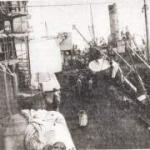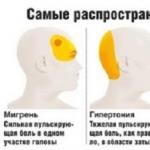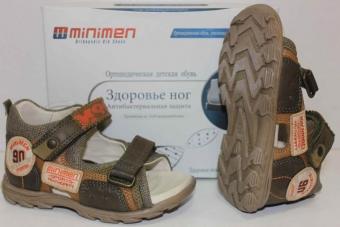Nowadays, oatmeal is one of the most popular foods for people leading a healthy lifestyle. However, at the dawn of civilizations, this culture was actively exterminated, perceived as a weed in the fields of wheat and rye. The plant in question began to be cultivated about four thousand years ago in the territory where China and Mongolia are located today.
How to choose?
When choosing oat groats in the store, make sure that the packaging is airtight, as the groats absorb moisture well. It is better to give preference to products that need to be cooked for more than 8-10 minutes. Recall that the more time it takes to cook porridge, the more coarse fibers it contains. Oatmeal should be clean, without impurities, litter. The grains should not be broken, crushed, stick together into lumps.
How to store?
Oatmeal should be stored in a dark place, in conditions of low humidity and at a temperature of minus eight to minus ten degrees. For example, the product can be placed in the refrigerator. At higher temperatures, simple sugars begin to form in oatmeal, as a result of which it loses its beneficial qualities.
calories
The energy value of oatmeal is 345 kcal per 100 grams of the product.
Nutritional value per 100 grams of oatmeal
The considered grains contain in their composition:
- 16.89 g of proteins,
- 66.27 g of carbohydrates,
- 6.9 g fat.
In addition, oatmeal contains:
- 4.72 mg iron
- 630 micrograms of copper
- 3.97 mg zinc
- 429 mg potassium,
- 4.92 mg manganese,
- 177 mg magnesium
- 54 mg calcium
- 523 mg phosphorus,
- 2 mg sodium.
Useful properties of oatmeal
- Useful qualities of oatmeal are due to its chemical composition. Recall that in addition to all of the above, the product in question contains vitamins A, B1, B2, E, P.
- Oatmeal is a valuable source of protein and fiber (one bowl of oatmeal provides a quarter of the daily fiber requirement). It improves metabolism in the body, is involved in the formation of muscle tissue.
- Due to the fact that calcium and fluorine are present in the grains, the cereal strengthens the skeletal system.
- Iron, which is also present in sufficient quantities in the cereal under consideration, normalizes the work of hematopoietic organs, restores the level of hemoglobin in the blood, and is a prophylactic against anemia.
- Oatmeal is an antioxidant. It is not for nothing that many Hollywood stars include this product in their diet, which ensures the beauty of hair, clean skin, healthy teeth and nails.
- Oatmeal has a stimulating effect on the gastrointestinal tract. It must be present in the daily menu of people suffering from diseases of the digestive system. Recall that oatmeal, enveloping the gastric mucosa, creates a protective film on its surface, protecting it from mechanical and chemical effects.
- In addition to all of the above, oatmeal removes various kinds of toxins, drugs, and alcohol from the intestines. It allows you to relieve pain in the abdomen, eliminates bloating.
- Oatmeal is also used as a prophylactic against oncological diseases of the gastrointestinal tract. It is included in diets - tables for patients with gastritis, peptic ulcers, etc.
- Oatmeal jelly fights constipation and diarrhea. To prepare the indicated composition, it is necessary to mix cereals and boiled water in equal parts, add yeast (a small amount), rye bread and leave to ferment for about 12 hours in a warm place. Then the liquid is drained, the composition is brought to a boil.
- Due to the fact that oatmeal contains biotin, it can be used for dermatitis, allergies.
- In addition, oatmeal has a stimulating effect on memory and brain function in general.
- The product in question normalizes the concentration of cholesterol in the blood, destroys cholesterol plaques. It lowers blood pressure and can be used to prevent cardiovascular disease.
- Oats are also beneficial for people with diabetes. It has a mild diuretic effect, relieves swelling.
The first consumers of oatmeal were by no means the British, the first to appreciate the usefulness of oats were horses. Thanks to these grains, they can withstand heavy loads and are distinguished by excellent health. Why do people still have to prove how healthy oatmeal is? In this article, we will talk about what vitamins oatmeal contains and how it is useful for the body.
Oats are an edible cereal crop. Oat flakes are used as food, they are peeled and steamed. All useful substances and vitamins contained in oatmeal are stored in it even after heat treatment. Oats contain complex carbohydrates, thus being a powerful source of energy.
One bowl of oatmeal contains a quarter of a person's daily fiber requirement.
Oatmeal is rich in compounds and tocopherol (E). They nourish and heal the skin, maintain the balance of the nervous system. The table shows which vitamins predominate in oatmeal:
| Name | mg per 100 gr |
| 0,5 | |
| 0,1 | |
| 1,1 | |
| 94 | |
| 0,9 | |
| 0,27 | |
| 0,029 | |
| 3,4 |
Scientists believe that the consumption of oatmeal is beneficial orno affects the life expectancy of a person. You can joke endlessly about the selfless love of the British for oatmeal, but the statistics are relentless. The inhabitants of this country live an average of 15 years more than other Europeans.

Oatmeal includes the following micro and macro elements:

A small serving of oatmeal contains:
- daily intake of silicon , responsible for the absorption of calcium and contributing to the normal functioning of the brain;
- the same level of manganese , without which thiamine, copper, iron cannot be fully absorbed;
- a third of the daily requirement of phosphorus strengthening bone tissue;
- quarter iron , responsible for the level of hemoglobin;
- the same amount of magnesium that improves the state of the nervous system and protects against stress.
The nutritional value
The energy value of cereals is 342 kcal per 100 gr.

Benefits of oatmeal
The products have many advantages:
- Oatmeal envelops the inner surface of the stomach, thereby reducing the painful symptoms of gastritis and ulcers.
- The fiber contained in oatmeal normalizes the activity of the stomach and intestines.
- Oats contain beta-glucan, which helps lower cholesterol.
- The low glycemic index allows hercules to be completely absorbed, while having a low calorie content.
- Thanks to its vitamin composition, oatmeal gives a charge of vivacity and strength for the whole day.
- The substances included in the composition prevent osteoporosis, protect bones and teeth from destruction.

When is it dangerous to use it?
It is worth refraining from eating oatmeal and flakes in the following cases:
- the presence of heart and kidney failure;
- individual intolerance to cereals.
Excess consumption of porridge can cause calcium to be washed out of the bones due to the content of phytic acid in cereals.
How is oatmeal used?
Oatmeal porridge contains only 15 kcal more than porridge boiled in water. Nutritional value gives quick satiety.

Nutritionists prescribe oatmeal jelly for weight loss. Its mild effect and cleansing properties are gentle on the stomach and remove all unnecessary.

This recipe is widely used in cosmetology. Crushed oatmeal is poured with warm water and insisted. Then this slurry is used as a mask on the face and décolleté. This mask plays the role of a natural scrub, cleanses the pores and makes the skin supple.

Bran
Some still refer to bran as a product that does not deserve attention. However, oat bran is 90% active ingredients, they are superior in potassium content. Fiber in bran prevents dysbacteriosis.

The value of oatmeal cookies is as follows:
- baking takes less time than other types of cookies;
- most of the nutrients are retained;
- cookies are famous for their high palatability.

Nutritional value per 100 grams of oatmeal:
- Carbohydrates - 66.27 g
- Proteins - 16.89 g
- Fats - 6.9 g
Energy value in 100 grams of oatmeal:
- 389 kcal
Carbohydrates in oatmeal
Monosaccharides:
- Glucose - 0 g
- Fructose - 0 g
Disaccharides:
- Sucrose - 0 g
Polysaccharides:
- Starch - 55.7 g
Protein in oatmeal
Essential amino acids:
- Valine - 0.937 g
- Histidine - 0.405 g
- Glutamine - 3.712 g
- Isoleucine - 0.694 g
- Leucine - 1.284 g
- Lysine - 0.701 g
- Methionine - 0.312 g
- Threonine - 0.575 g
- Tryptophan - 0.234 g
- Phenylalanine - 0.895 g
Non-essential amino acids:
- Alanine - 0.881 g
- Arginine - 1.192 g
- Asparagine - 1.448 g
- Glycine - 0.841 g
- Proline - 0.934 g
- Serine - 0.750 g
Conditionally essential amino acids:
- Tyrosine - 0.573 g
- Cystine - 0.408 g
Fats in oatmeal
- Saturated fatty acids - 1.217 g
- monounsaturated fatty acids - 2.178 g
- Polyunsaturated fatty acids - 2.535 g
- Cholesterol - 0 mg
Minerals in 100 grams of oatmeal:
- Calcium - 54 mg
- Iron - 4.72 mg
- Magnesium - 177 mg
- Phosphorus - 523 mg
- Potassium - 429 mg
- Sodium - 2 mg
- Zinc - 3.97 mg
- Copper - 0.626 mg
- Manganese - 4.916 mg
Vitamins in 100 grams of oatmeal:
- Vitamin C ( Vitamin C) – 0 mg
- Thiamine ( Vitamin IN 1) - 0.763 mg
- Riboflavin ( Vitamin B2) - 0.139 mg
- Niacin ( Vitamin B3 or Vitamin PP) - 0.961 mg
- Pantothenic acid ( Vitamin B5) - 1.349 mg
- Pyridoxine ( Vitamin B6) - 0.119 mg
- Folacin ( Vitamin B9 or folic acid) - 56 mcg
- Choline ( Vitamin B4) – 0 mg
- Retinol ( Vitamin A) – 0 µg
- Tocopherol ( Vitamin E) – 0 mg

The benefits of oatmeal (oatmeal)
Energy benefits of oatmeal:
100 grams of oatmeal contains about 55.7 grams of digestible carbohydrates. This means that by eating a 100 gram serving, your body receives 222.8 kcal, which will go directly to providing the body with energy. Moreover, all these carbohydrates are represented by starch. Starch is one of the complex carbohydrates, it is digested gradually, enters the blood slowly, the muscles and liver store it in the form of glycogen chains, after which, if necessary, it is used by the body for a long time.
Oatmeal provides the body with energy for a long time.
Building benefits of oatmeal:
100 grams of oatmeal contains 16.9 grams of protein. The amino acid composition is complete, however, oatmeal is a product of plant origin, which means that the protein will be poorly absorbed and most of the essential amino acids simply will not be absorbed by our body.
Oat flakes are a poor source of protein, therefore they do not represent a special building benefit for our body.
The benefits of oatmeal for the digestive system:
100 grams of oatmeal contains 10.6 grams of dietary fiber (fiber), which is equal to 30% of the daily requirement for an adult. Dietary fiber helps digest food and remove toxins.
It is very useful to include oatmeal in your diet, so you help your digestive system and rid your intestines of toxins that accumulate during the day and during sleep.
Fatty benefits of oatmeal:
100 grams of oatmeal contains about 5 grams of fully digestible fats, which will be directly used by our body for protective, energy functions. Thanks to the fats in oatmeal, the minerals from the oatmeal itself and other products that come at that moment can get directly into the bloodstream and be used further by our body for its intended purpose.
There are few saturated fats, which means that fats from oatmeal will not harm your body!
Mineral benefits of oatmeal:
Let's see how a 100 gram serving of oatmeal satisfies the body's daily need for the most basic and essential minerals:
- Calcium - 6.75%
- Iron - 31.47%
- Magnesium - 44.25%
- Phosphorus - 34.87%
- Potassium - 10.73%
- Sodium - 0.05%
- Zinc - 26.47%
- Copper - 31.3%
- Manganese - 163.87%
As we can see, oatmeal is a very good source of the minerals we need. This product can rightly be considered a source of the following minerals:
- Iron
- Magnesium
- Phosphorus
- Manganese
Vitamin benefits of oatmeal:
Let's see how 100 grams of oatmeal per day satisfies the body's daily need for vitamins:
- Vitamin C ( Vitamin C) – 0%
- Thiamine ( Vitamin IN 1) – 38,15%
- Riboflavin ( Vitamin B2) – 6,95%
- Niacin ( Vitamin B3 or Vitamin PP) – 6,41%
- Pantothenic acid ( Vitamin B5) – 13,49%
- Pyridoxine ( Vitamin B6) – 5,95%
- Folacin ( Vitamin B9 or folic acid) - 3.73%
- Choline ( Vitamin B4) – 0%
- Retinol ( Vitamin A) – 0%
- Tocopherol ( Vitamin E) – 0%
- Vitamin B1
- Vitamin B5
Opinions on oatmeal:
Oatmeal is a very good product. It has good healthy carbohydrates, little unhealthy fats. In addition, oatmeal contains a lot of dietary fiber. We often eat all sorts of different foods that are low in dietary fiber, and I would recommend everyone to include this product in their daily diet.
When is the best time to eat it? Very often you can find information that oatmeal is very useful for breakfast. To be honest, it is impossible to say for sure whether this is true or not. On the one hand, eating a portion of oatmeal for breakfast, you will supply the body with energy, carbohydrates, on the other hand, the body needs protein after sleep. How would I do.
The best option is to take and learn to feel your body. Try eating them for breakfast. If things go well and you start to feel much better after a while, keep going, if it's the other way around, then stop eating oatmeal for breakfast and eat it at another time as a source of complex carbohydrates. Try.
As for vitamins and minerals. There are not so many vitamins, they are all of group B. Oatmeal cannot become a source of vitamins. But with minerals, the opposite is true. Oatmeal is an excellent source of essential minerals. Including it in your diet, you will not only supply the body with high-quality energy, but also with all the minerals necessary for life!
It is advisable to eat oatmeal along with foods that contain a full-fledged vitamin composition.
Nothing seems to make a better morning than a bowl of steamed oatmeal. Although by and large it does not matter in what form oatmeal is used: in the form of milk porridge, as a component of a cocktail or other dishes, it still remains a delicious product and the perfect breakfast of British aristocrats.
What is oatmeal
Oatmeal is, simply put, steamed and flattened grains of ordinary oats. And although today many consider Hercules to be a modern dish, in fact this porridge is more than a thousand years old - the ancient Greeks were the first to cook it.
Modern oats trace their “pedigree” from a wild relative that “inhabited” the expanses of China about 7,000 years ago. Ancient people actively used the benefits of this cereal. Meanwhile, long before oats became food, ancient people used it as a medicinal plant. Over time, this porridge has become a favorite for many Europeans. She confidently entered the cookbooks of the Scots, the British, the Germans, the inhabitants of Scandinavia, and in the 17th century reached the shores of America. Today, the largest producers of oats are Russia, USA, Poland, Germany, Finland.
Oats, also known as Avena Sativa, are a common cereal in the world, picky about the soil and capable of producing excellent yields in places where life is more difficult for other cereals. And the incredible power of this plant seems to be transmitted to those who eat food from oat grains. And, as it turned out, our mothers were right when they said that oatmeal gives energy and strength.
Beneficial features
Asthma protection for children
Asthma (an inflammatory disease of the airways) is a very common chronic disease among children. And although not all patients have acute symptoms, but recurrent cough, wheezing, shortness of breath are characteristic of many of them. Some researchers suggest that one of the reasons for the development of asthma is the early introduction of solid foods in the diet of babies. But interestingly, this warning does not apply to oatmeal. On the contrary, the early introduction of oatmeal porridge into the children's diet only strengthens their immunity and strengthens the body.
 Other benefits of oatmeal:
Other benefits of oatmeal:
- serves as a prevention of diabetes;
- increases athletic endurance;
- strengthens the immune system;
- improves sleep.
In folk medicine, hercules is used:
- to strengthen teeth and bones;
- for the treatment of digestive organs;
- as an antidepressant;
- to remove carcinogens;
- for the treatment of the genitourinary and endocrine systems;
- with anemia, gastritis, colitis, administration;
- to restore the gastric mucosa;
- to get rid of edema;
- for cleansing the kidneys, liver, blood vessels.
Oatmeal detox for body cleansing
 Another name for this remedy is oatmeal. It's easy to prepare. To do this, you will have to pour about a third of a glass of boiled (cooled) oatmeal. Let the mixture brew (you can overnight), then strain. Folk healers advise using oat milk daily on an empty stomach with a small amount. They say that such an infusion has incredible healing properties, removes toxins, and instead enriches the body with many useful substances.
Another name for this remedy is oatmeal. It's easy to prepare. To do this, you will have to pour about a third of a glass of boiled (cooled) oatmeal. Let the mixture brew (you can overnight), then strain. Folk healers advise using oat milk daily on an empty stomach with a small amount. They say that such an infusion has incredible healing properties, removes toxins, and instead enriches the body with many useful substances.
nutritional value
Oats are one of the healthiest grains. In addition to being gluten-free, it is also extremely high in vitamins, minerals, fiber and antioxidants.
In addition, oatmeal is known as a porridge, extremely rich in useful ingredients. The product earned this fame thanks to manganese, selenium, phosphorus, magnesium, zinc, vitamin E, carotenoids and those included in its composition. Manganese, for example, is important for healthy growth, development, and metabolism, phosphorus is essential for bone health, copper is considered good for the heart, and iron prevents anemia. You can also talk about the benefits of selenium for a long time, since it is an important antioxidant on which immunity and the ability to resist oncological formations depend.
Hercules has a reputation as a porridge for weight loss and blood sugar, preventing heart disease and clogged blood vessels, and many other benefits.
| calories | 362 kcal |
| 11.9 g | |
| 6.9 g | |
| 69.5 g | |
| 772 mcg | |
| 0.51 mg | |
| 1.9 mcg | |
| 0.45 mg | |
| 0.05 mg | |
| 1.03 mg | |
| 1.2 mg | |
| 0.08 mg | |
| 32 mcg | |
| 27.7 mg | |
| 351 mg | |
| 24.72 mg | |
| 128 mg | |
| 423 mg | |
| 366 mg | |
| 220 mg | |
| 2.51 mg | |
| 0.36 mg | |
| 3.39 mg | |
| 23.2 mg |
Oatmeal for breakfast: the right recipe
 As already noted, oatmeal can be consumed in different forms, but the most popular is porridge for breakfast. For the simplest way to prepare breakfast, you will need half a glass of oatmeal, a glass of milk or water, and a pinch of salt.
As already noted, oatmeal can be consumed in different forms, but the most popular is porridge for breakfast. For the simplest way to prepare breakfast, you will need half a glass of oatmeal, a glass of milk or water, and a pinch of salt.
The ingredients are mixed in a saucepan and brought to a boil, then reduce the heat and cook the porridge until soft. Additional ingredients will help make oatmeal more tasty and nutritious. It can be cinnamon, fruits, nuts, seeds or yogurt.
In addition, oatmeal is often used for baking bread, delicious oatmeal cookies and making muesli.
Possible dangers
Although oats are gluten-free, oatmeal can sometimes contain small amounts of gluten. This happens when the grains are processed with the same equipment as other gluten-containing grains. This is important to pay attention to people with celiac disease or hypersensitivity to gluten.
Benefits in cosmetology
 Value for the skin
Value for the skin
It is no coincidence that oat extract is included in many skin care products. Also, home-made cosmetics rarely do without an important component - oatmeal.
Scientists have determined that oatmeal has a protective effect on the skin, relieves itching and irritation caused by various skin diseases. Practice shows that oatmeal is an excellent cure for eczema. In addition, hercules helps to moisturize the skin and protect against potential irritants, and thanks to its rich mineral and vitamin composition, it nourishes and improves the condition of the epidermis.
Hair Benefits
Hercules is useful not only for digestion, this product also provides the right one. There are hundreds of variations of homemade hair beauty recipes using oatmeal. An impressive list of useful substances contained in this porridge makes it an indispensable substance for strengthening and accelerating the growth of hair.
As a rule, most oat masks use flakes crushed to a state of flour, which are combined with other healthy products (vegetable oils, yogurt, eggs, honey, vitamins). The finished product should have a thick consistency. Keep on hair for at least 30 minutes.
Oatmeal is an amazing porridge with a rich chemical composition. It is an excellent source of vitamins, minerals and antioxidants, including unique ones. The benefits of this dish have been known to people for centuries. And having learned about the amazing abilities of this cereal, it becomes clear why the famous "Oatmeal, sir!" the British pronounce it with such respect. After all, if it were possible to rank all known cereals by class, Hercules would undoubtedly be a revered aristocrat among other cereals.
Oat flakes "Hercules" rich in vitamins and minerals such as: vitamin B1 - 30%, vitamin B5 - 22.4%, vitamin B6 - 12%, vitamin H - 40%, vitamin PP - 23%, potassium - 13.2%, magnesium - 32 3%, phosphorus - 41%, iron - 20%, cobalt - 50%, manganese - 191%, copper - 45%, selenium - 52.5%, zinc - 25.8%
What is useful Oat flakes "Hercules"
- Vitamin B1 is part of the most important enzymes of carbohydrate and energy metabolism, providing the body with energy and plastic substances, as well as the metabolism of branched-chain amino acids. The lack of this vitamin leads to serious disorders of the nervous, digestive and cardiovascular systems.
- Vitamin B5 participates in protein, fat, carbohydrate metabolism, cholesterol metabolism, the synthesis of a number of hormones, hemoglobin, promotes the absorption of amino acids and sugars in the intestine, supports the function of the adrenal cortex. A lack of pantothenic acid can lead to damage to the skin and mucous membranes.
- Vitamin B6 participates in the maintenance of the immune response, the processes of inhibition and excitation in the central nervous system, in the transformation of amino acids, the metabolism of tryptophan, lipids and nucleic acids, contributes to the normal formation of red blood cells, maintaining a normal level of homocysteine in the blood. Insufficient intake of vitamin B6 is accompanied by a decrease in appetite, a violation of the condition of the skin, the development of homocysteinemia, anemia.
- Vitamin H participates in the synthesis of fats, glycogen, amino acid metabolism. Insufficient intake of this vitamin can lead to disruption of the normal condition of the skin.
- Vitamin PP participates in redox reactions of energy metabolism. Inadequate vitamin intake is accompanied by a violation of the normal state of the skin, gastrointestinal tract and nervous system.
- Potassium is the main intracellular ion involved in the regulation of water, acid and electrolyte balance, is involved in the processes of nerve impulses, pressure regulation.
- Magnesium participates in energy metabolism, synthesis of proteins, nucleic acids, has a stabilizing effect on membranes, is necessary to maintain homeostasis of calcium, potassium and sodium. Lack of magnesium leads to hypomagnesemia, increased risk of developing hypertension, heart disease.
- Phosphorus takes part in many physiological processes, including energy metabolism, regulates acid-base balance, is part of phospholipids, nucleotides and nucleic acids, is necessary for the mineralization of bones and teeth. Deficiency leads to anorexia, anemia, rickets.
- Iron is a part of proteins of various functions, including enzymes. Participates in the transport of electrons, oxygen, ensures the occurrence of redox reactions and activation of peroxidation. Insufficient consumption leads to hypochromic anemia, myoglobin deficiency atony of skeletal muscles, increased fatigue, myocardiopathy, atrophic gastritis.
- Cobalt is part of vitamin B12. Activates the enzymes of fatty acid metabolism and folic acid metabolism.
- Manganese participates in the formation of bone and connective tissue, is part of the enzymes involved in the metabolism of amino acids, carbohydrates, catecholamines; necessary for the synthesis of cholesterol and nucleotides. Insufficient consumption is accompanied by growth retardation, disorders in the reproductive system, increased fragility of bone tissue, disorders of carbohydrate and lipid metabolism.
- Copper is part of the enzymes that have redox activity and are involved in the metabolism of iron, stimulates the absorption of proteins and carbohydrates. Participates in the processes of providing tissues of the human body with oxygen. Deficiency is manifested by violations of the formation of the cardiovascular system and skeleton, the development of connective tissue dysplasia.
- Selenium- an essential element of the antioxidant defense system of the human body, has an immunomodulatory effect, participates in the regulation of the action of thyroid hormones. Deficiency leads to Kashin-Bek's disease (osteoarthritis with multiple deformities of the joints, spine and limbs), Keshan's disease (endemic myocardiopathy), and hereditary thrombasthenia.
- Zinc is part of more than 300 enzymes, is involved in the synthesis and breakdown of carbohydrates, proteins, fats, nucleic acids and in the regulation of the expression of a number of genes. Insufficient intake leads to anemia, secondary immunodeficiency, liver cirrhosis, sexual dysfunction, and fetal malformations. Recent studies have revealed the ability of high doses of zinc to disrupt the absorption of copper and thereby contribute to the development of anemia.
A complete guide to the most useful products you can see in the application





